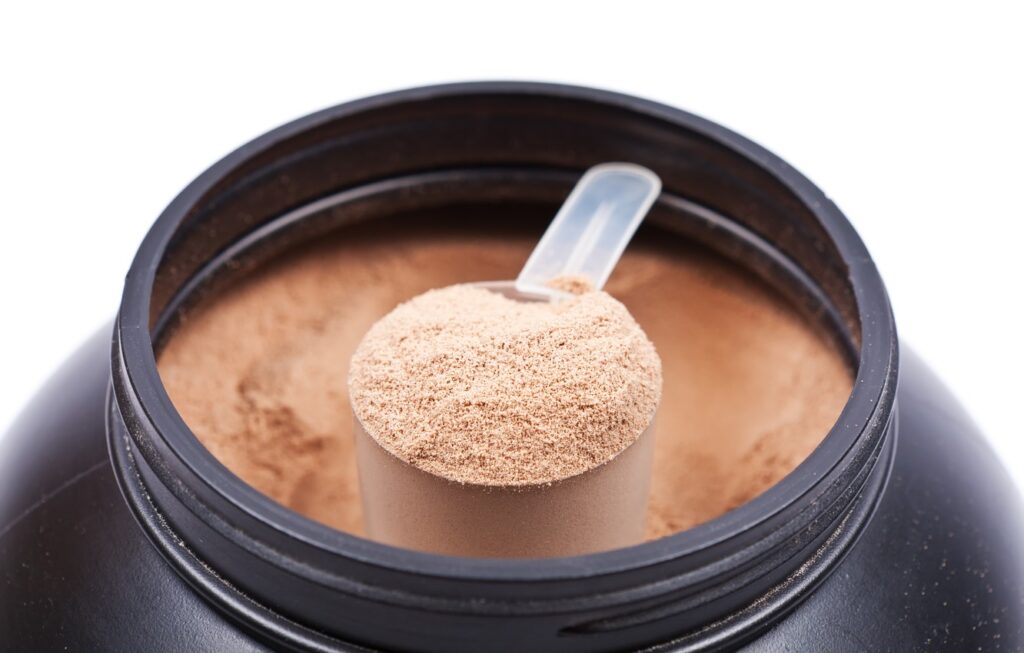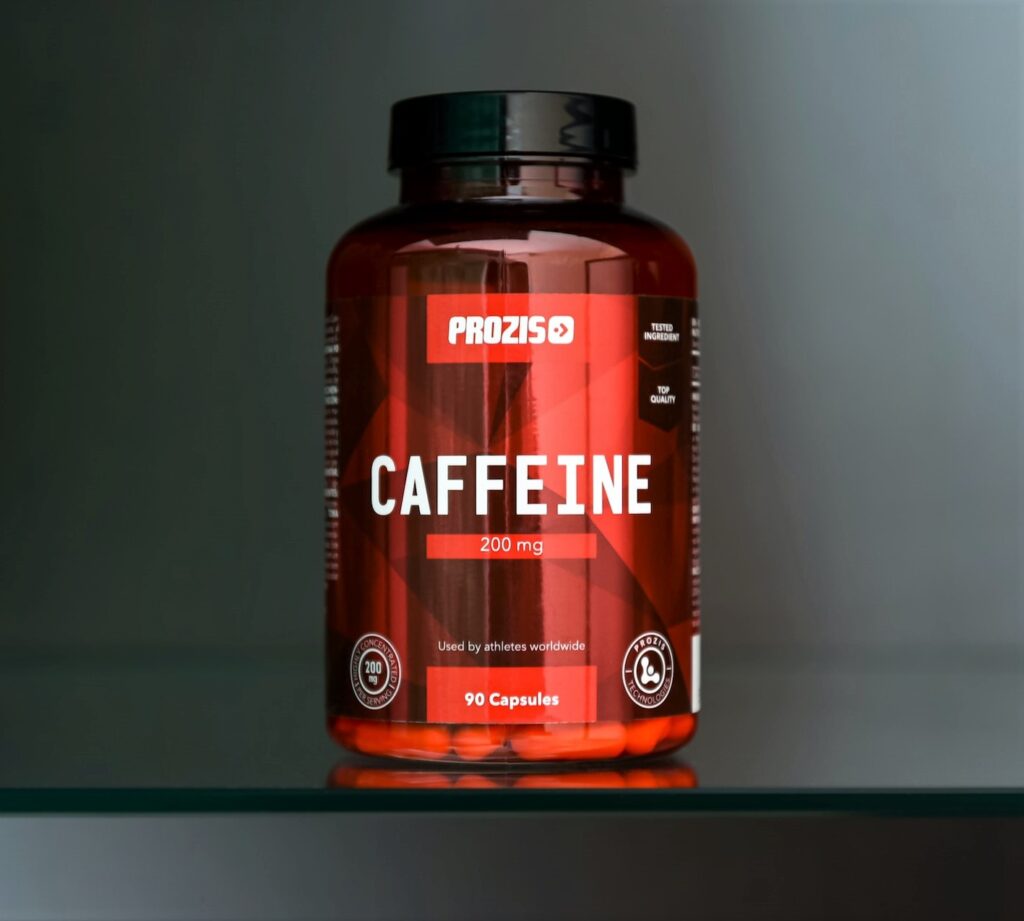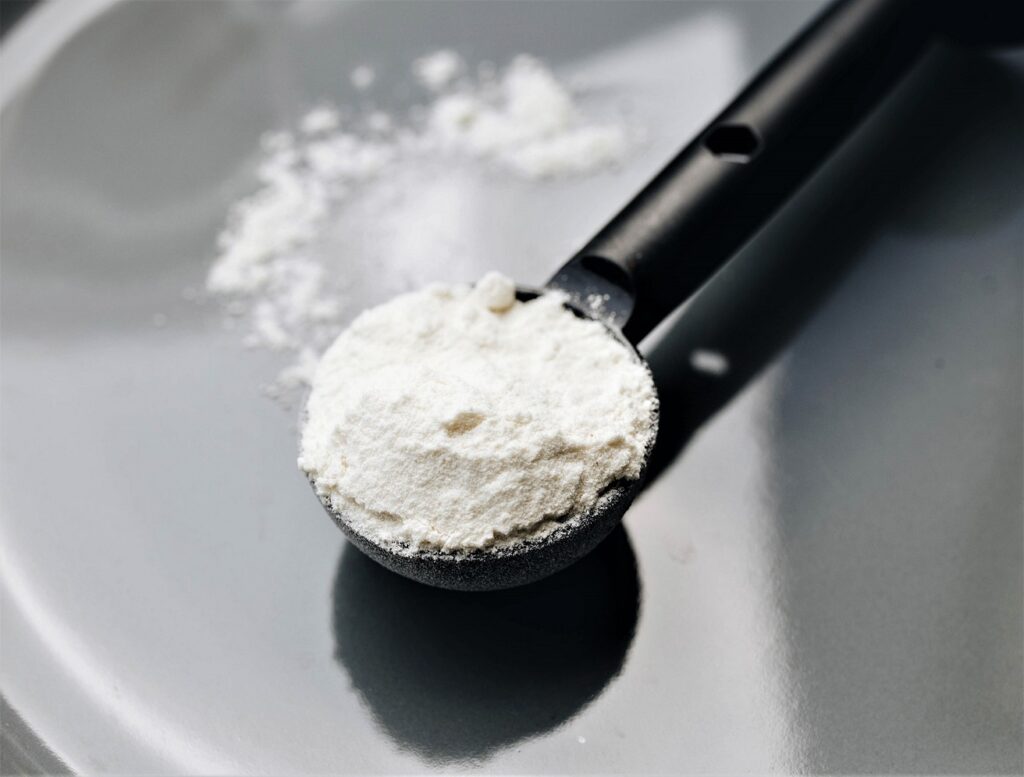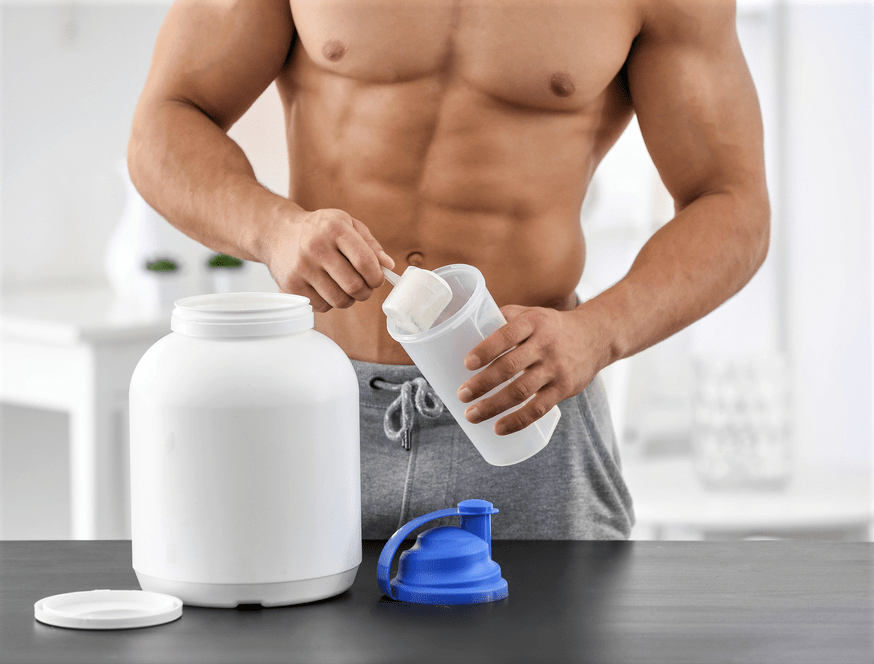There are a lot of bad bodybuilding supplements, ones that simply do nothing or do much less than promised. In fact, most supplements probably aren’t worth your money. And there are some we like that have more to do with health: fish oil, green tea extract, vitamin C, etc. But we’ve focused only on supplements that help you grow strength and size and only those that have been proven to work. The good news is all of them are reasonably priced.
Here, ranked are the four best supplements for gaining muscle.
1. WHEY PROTEIN POWDER
Right off the start, we’ll start with the king of all muscle gain supplements. Since its introduction to the bodybuilding world in 1951, protein powder has been a convenient way to drink muscle-making protein without a lot of carbohydrates, fat, or calories. From soy to milk-and-egg to whey, protein powder has transformed over the decades. Stick to whey or a blend with whey isolate or whey concentrate as the first ingredient.

There’s nothing magical about whey protein powder, or any supplement, despite what ads might say. That’s not why this is an easy call for number one. It’s just powdered milk solids. But it’s a great compliment to “real food,” and a whey-and-water shake is easy way to consume the protein necessary to grow.
Recommended Dose: 25-50 g. of protein per serving
2. CREATINE
Probably no bodybuilding supplement in history has been studied more than creatine. In 2017, the International Society of Sports Nutrition published a review of those studies and concluded: “Creatine monohydrate remains one of the few nutritional supplements for which research has consistently shown has ergogenic [physical performance enhancing] benefits. Additionally, a number of potential health benefits have been reported from creatine supplementation.” And even after countless studies over the past three decades, there is no evidence that creatine is unsafe or has negative side effects.
Creatine is an organic compound found in muscle cells that helps your muscles produce energy during intense exercise, like lifting weights. About half of your body’s creatine stores come from the food you eat—red meat is a great source—while the rest is made from amino acids in your kidneys and liver. During exercise it produces more ATP, the key energy source for heavy lifting and intense cardio.
So, creatine helps make you stronger and allows you to work harder longer. With that added strength and workout endurance comes muscle growth, but creatine also signals the muscle cells to grow, raises anabolic hormone levels, reduces protein breakdown, lowers myostatin levels (that’s good), and increases cell hydration which may boost the water volume of muscles. In other words, creatine does a lot of very good things for muscle growth.
Recommended Dose: 5 g. pre-workout and/or post-workout
3. CAFFEINE
Who needs the latest over-hyped, exotic supplement (turkesterone, anyone?) when good ol’ caffeine delivers results on the cheap. More energy. ✔️ More strength. ✔️ More endurance. ✔️ Less muscle soreness. ✔️ Bigger pump. ✔️ There’s a reason why caffeine—a central nervous system stimulant—is in all those preworkout supplements. It works, and it works in a lot of different ways to boost your workout and keep bosting your workout from start to finish.

In fact, at as little as 10 cents per dose, caffeine gives you your biggest workout bang for your buck. (It’s a fat-burner too.) Of course, you can drink it in a coffee, tea, no-calorie soda or energy drink or eat it in chocolate, but pill or powder form is the cheapest and most accurate way to dose before your workouts. Caffeine takes 30-60 minutes to reach its maximum effect (and it remains high for hours), so time this one to kick in when your big weights start moving.
Recommended Dose: 200-400 mg. pre-workout
For much more on caffeine, check out: Caffeine and Exercise: Ultimate Workout Supplement?
4. BETA-ALANINE
This one is a little controversial. We’re aware that beta-alanine, a popular ingredient in preworkout supps, appears on “Worst Bodybuilding Supplement” lists, like this one. And we know the paresthesia (that tingly, itchy feeling) it serves up has nothing directly to do with workout success but is also, in this case, not unhealthy. (The best you can say is paresthesia provides evidence your expensive preworkout has at least one active ingredient.)
Beta-alanine does work. However, it works in a way that may or may not help your weight-training. β-alanine is a non-essential amino acid that aids in the production of carnosine, a molecule highly concentrated in muscle tissue that plays a role in endurance during high-intensity exercise. (You can supplement carnosine, but we don’t recommend it because it’s much less bio-available than β-alanine.)

A meta-analysis of 40 studies concluded “β-alanine had a significant overall effect while subgroup analyses revealed a number of modifying factors.” The most important of those modifying factors was “duration of continuous exercise.” At 1-4 minutes the effect was significant. However, “No effect was shown for exercise protocols lasting under 1 min.” Note that an average 10-rep set lasts about 30 seconds.
So, beta-alanine is valuable for high-rep sets (20 reps or more), circuit training, supersets, giant sets, drop sets, high-intensity cardio, and any exercise performed with maximum effort and minimal rest for more than a continuous minute, from sled-pushing to cycling to MMA fighting and much more. If none of the above applies to you, beta-alanine is a “bad” supplement, or, at least, an unnecessary one. But for most of you, beta-alanine is a “good” supplement. It’ll help you eke out a couple final reps near the end of a drop set or giant set or keep you sprinting during that final burst of cardio.
Recommended Dose: 3-5 g. pre-workout
For much more on beta-alanine, check out: Beta-Alanine Benefits: How Does It Help Your Workouts?
















































